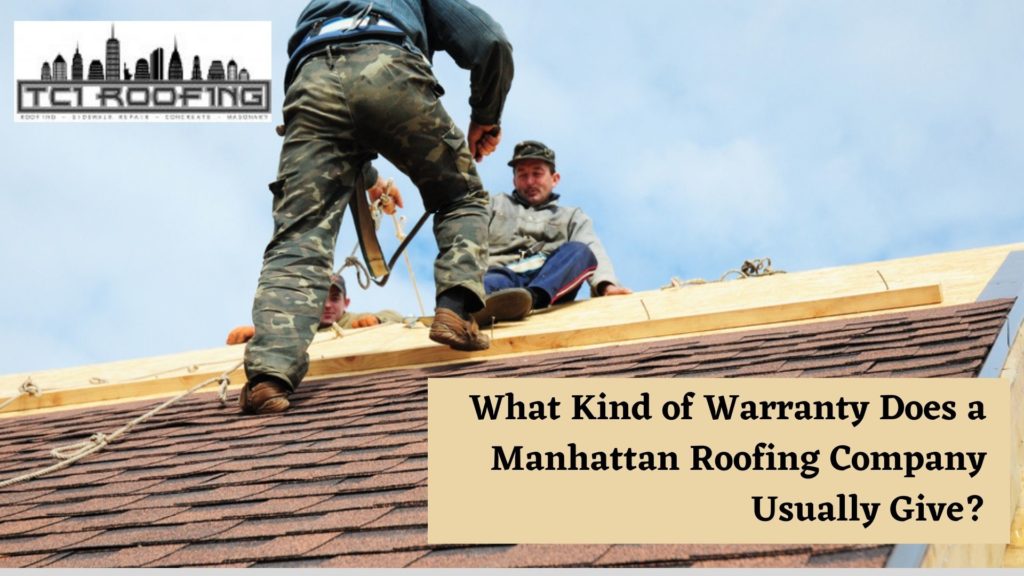What kind of warranty does a roofing company usually give? That is the question that many homeowners ask themselves when they are looking for roofers near me. If you’re wondering the answer, then you should be focusing on roofing warranties. Many roofer companies offer standard warranties and guarantees like a “10-year workmanship guarantee” or “lifetime roof replacement.” This blog post discusses what kinds of lifetime roofs and other roofing warranties exist so that you can choose one that suits your needs. A roof repair from roofing contractors near me.
Two Main Types of Roofing Warranties
Despite the many misconceptions surrounding roofing warranties in a local roofing company, there are only two types to consider: manufacturer warranties and contractor warranties. Each has its characteristics. It’s vital to understand which policies cover you, what they guarantee, and what you need to do to keep your coverage.
Manufacturer Warranties
The industry standard is for most roofing shingles to come with a basic limited lifetime guarantee. A lifetime guarantee, in most situations, implies you’re covered for as long as you own your property. However, the level of protection you get is determined by the manufacturer’s definition of “limited,” which can differ:
Because most roofing contractor warranties only cover the cost of defective materials, you’ll be liable for any labor costs associated with removing and disposing of failing shingles and replacing them.
For the first few years, most manufacturers pay the cost of repairing damaged shingles, after which they give prorated coverage. If any shingles are found to be defective during the first year, the manufacturer will provide you with free replacement shingles. This first coverage also covers labor charges for installing replacement shingles but not tearing off and discarding damaged shingles. If something goes wrong during the prorated period, you’ll get a port.
These standard manufacturer warranties only cover factory faults; they don’t cover shingles that fail early due to mistakes made during installation or any other components placed by your roofer, such as ice and water shield, underlayment, flashing, or ventilation products. These additional components may be protected by individual guarantees against defects, depending on the manufacturer.
Contractor Warranties
The roofing contractor who installs it has a significant impact on its performance and lifetime. Each installation operation is backed by a quality warranty from reputable, professional roofers. This type of guarantee varies greatly depending on the contractor. However, some companies give lifelong coverage. While a longer coverage duration is preferable, regardless of the coverage term, includes roof installation, roofing materials, repair service for missing shingles, and other roofing projects or roofing services. A solid craft warranty should protect you against material failures caused by worker errors or faulty installation practices.
Roofing contractors’ craft warranties often cover the cost of labor and any materials required to complete necessary repairs, as well as any connected damages to the home’s interior, as well as your personal belongings.
Four Steps to Protect Your Warranty
The last thing a homeowner wants is to file a claim only to discover that their roof replacement warranty has expired. But, unfortunately, this is precisely what happens when people believe their warranties cover them.
Follow these four steps to protect your coverage:
Get Regular Inspections
Your roofing companies can discover and address minor issues with vents, flashing, shingle damage, caulking deterioration, and more by inspecting the roof every one or two years. Maintaining your warranty coverage is as simple as staying on top of maintenance and avoiding major work in the future.
Stay with Your Original Contractor
When a separate company is engaged to alter the original installation, most contracts include wording that voids the contractor’s guarantee. Continuity aids initial installers in correcting their errors. In addition, having a good roofing contractor as a long-term partner will protect your investment and ensure warranty coverage.
Register Your Warranty
Don’t forget to register your product for warranty with the manufacturer. You might not have any coverage if you don’t have it. However, for increased securities, the procedure is different. First, the contractor installing the product must be qualified to do so and guarantee a warranty. The contractor must then register the security on the customer’s behalf. This level of coverage necessitates more than just a mail-in application.
Read the Fine Print
Your contractor must be certified by the shingle manufacturer and authorized to offer the guarantee you’ve requested. Your warranty will be void if you do not provide such authorization. Also, make sure you know what degree of certification your contract has. The highest certifications allow contractors to offer better warranties and raise the chances of protection and coverage retention.
What is the Best Roofing Warranty?
A roofing warranty’s phrase “lifetime” is a bit of a misnomer. It’s a widespread misperception that a lifetime refers to an individual’s entire life. Frequently, this is not the case. Some roofing firms consider a lifetime to be only five years. With an asphalt roof’s average lifespan of roughly 25 years, it’s critical to get a guarantee that covers the whole term of the top.
Due to climate and roofing material, life expectancy varies between manufacturers. Environments that suffer substantial temperature swings over a single day, such as desert climates, may have shorter lifetime guarantee coverage. Asphalt shingles, in general, are pretty durable in various conditions and provide a lot of protection.

